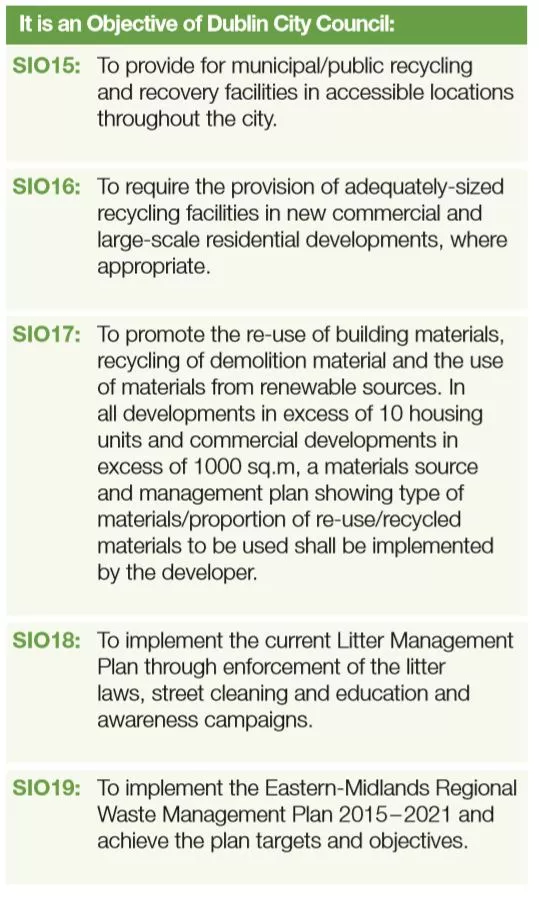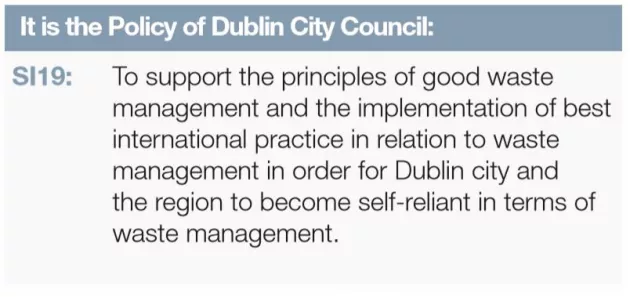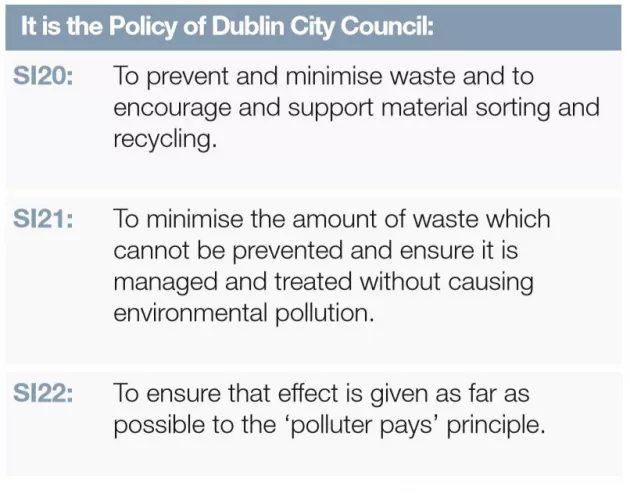9.5.5 Waste Management
9.5.5 Waste Management
The generation and management of waste is an everyday challenge, which the people, businesses, industry and institutions must recognise and address. In our daily lives, we produce non-hazardous, hazardous and sometimes toxic wastes. These wastes have the potential to impact negatively on our communities, our health, our environment and future generations if not managed appropriately.
Effective management systems are needed to ensure that we continue to live in healthy communities and protection is afforded to our environment. We have a collective responsibility to improve our behaviours in response to this ongoing problem. The protection and maintenance of a high quality environment will support continuing economic progress.
Under existing legislation, the Waste Management Act 1996 – 2001, a development plan is required to include the objectives of the Waste Management Plan for its area. The waste plan is an important and powerful planning document providing for the prevention, collection and treatment of wastes in the region.
The EasternMidlands Regional Waste Management Plan 2015 – 2021 sets out the strategic vision to re-think our approach to managing waste, by viewing our waste streams as valuable material resources. The strategic approach of the plan places a stronger emphasis on preventing wastes and material reuse activities.
The plan also focuses on enhancing the collection of quality materials from discarded waste to build on the positive progress made in recycling. The plan will strive to improve the recovery and generation of energy by maximising the resource value of the materials and energy embodied in residual wastes.
The plan will seek to further reduce the role of land filling in favour of higher value recovery options. In this respect the City Council will liaise with the adjoining local authorities with regard to the location and distribution of waste management facilities in West Dublin as per zoning maps D and G.
In terms of planning, the Eastern-Midlands Waste Plan sits alongside county and city development plans, guiding the development of regional and national waste treatment infrastructure. However, the scope of the regional plan is more than just the identification of infrastructure for the waste sector, as it provides a roadmap for better co-ordination, prevention, resource efficiency and regulatory activities.
Dublin City Council has now exited the waste collection market but continues to manage a network of bring centres, civic amenity sites and bottle banks for the recycling of a range of wastes from household and commercial sources.


